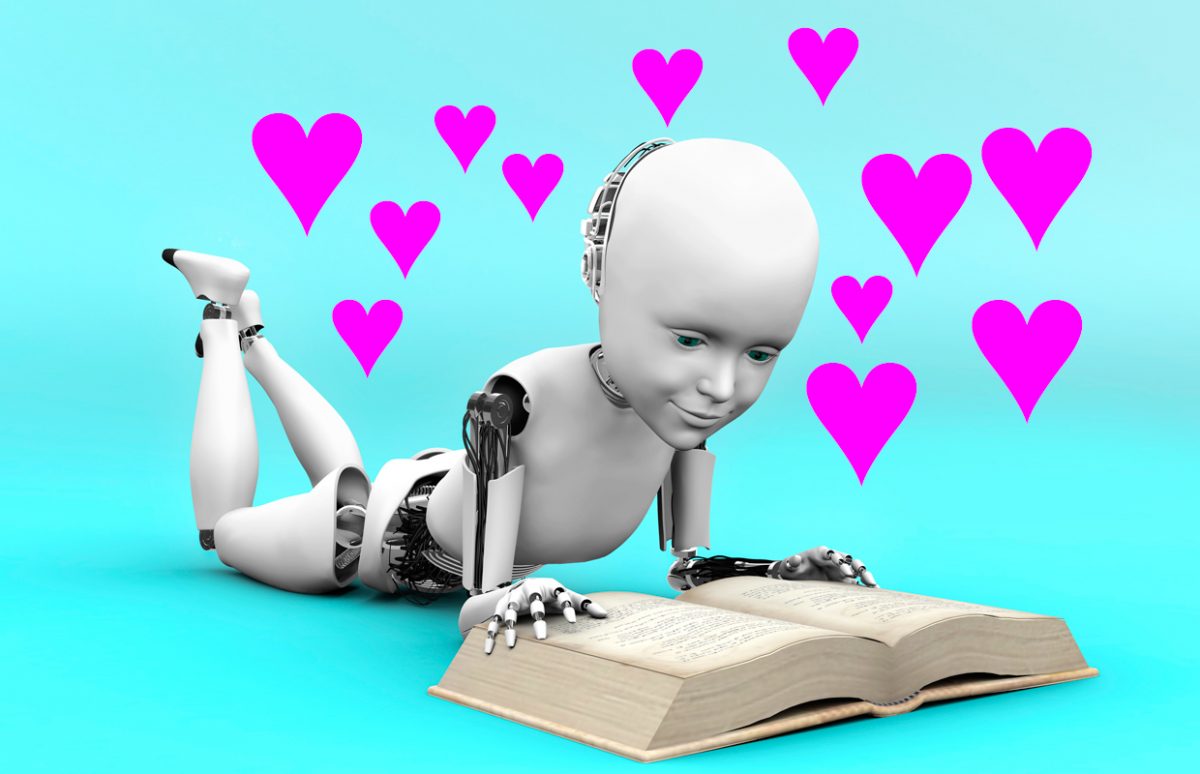Reading romance novels is a relaxing activity for millions around the world. But could it also be a way for computers and robots to become more human?
Researchers at Google’s Brain division have been feeding thousands of romance novels into working an artificial intelligence (AI) system to try to encourage the system used in search and apps to understand and adapt better to real human discourse. The researchers fed 11,000 unpublished novels into the neural network, including 3000 romance and 1500 fantasy novels. It then asked the system to produce language to link two sentences taken from the books.
The Romantic poets, love-lyricists and writers of Mills & Boon romances don’t have to fear for their jobs yet.
The program was trying to mimic variations in human speech, so the productions tend to be repetitive variations on a theme. Sentences are required to be similar in meaning to those that precede and follow them.
On the other hand, it could be interesting material for language teaching. This one reads like a grammar activity on reported speech! (The first and last lines each time are those provided by the researchers. Apparently AI systems are no more interested in punctuation than the current generation of texters!)
i want to talk to you.
i want to be with you.
i don’t want to be with you.
i don’t want to be with you.
she didn’t want to be with him.
This one would be great for a creative writing exercise on telling a story in minimal words – pupils could be asked to imagine what “I” said when she/he/it turned to him:
there is no one else in the world.
there is no one else in sight.
they were the only ones who mattered.
they were the only ones left.
he had to be with me.
she had to be with him.
i had to do this.
i wanted to kill him.
i started to cry.
i turned to him.
Humans and Computers
Andrew Dai, one of the Google researchers, hopes this research will lead to improvements in human/computer interaction. He said, “Hopefully with this work, and future work, it can be more conversational, or can have a more varied tone, or style, or register.”
It raises the question: Could users choose the tone they are addressed in, as we choose the voice we want to hear giving directions on GPS systems? Given the popularity of Fifty Shades of Grey in retirement homes, will pensioners have flirty chats with their computers?
Asked if in future humans could fall in love with computers, Andrew Dai quoted the ancient Greek myth of Pygmalion, who makes a statue of a beautiful woman and falls in love with her. “If you can fall in love with a statue, I don’t see why you couldn’t fall in love with a neural network trained on romance novels.”
It’s a long way off from the scenario of the 2013 Spike Jonze film Her in which Joaquin Phoenix’s character fell in love with his AI computer (voiced by Scarlett Johannson). But science-fiction does seem to have a habit of catching up with fact a lot faster than we expect.
Tag(s) : "computers" "emotions" "Give Me Five 4e" "language" "Langues et cultures de l'Antiquité" "love" "science-fiction" "Sciences" "technologie et société" "Valentine's day"





